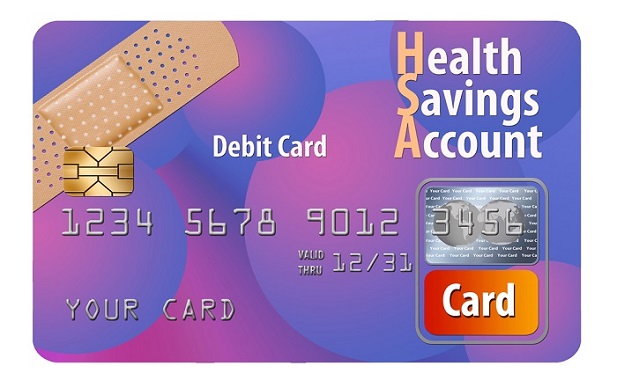 While health insurance premiums aren't generally treated as qualified medical expenses for HSAs, account holders can use their HSA to pay for COBRA premiums. (Photo: Shutterstock)
While health insurance premiums aren't generally treated as qualified medical expenses for HSAs, account holders can use their HSA to pay for COBRA premiums. (Photo: Shutterstock)
According to a survey by the National Association of Plan Advisers, 60% of plan sponsors say education about health savings accounts (HSAs) is a pressing need. In fact, 50% of Americans say they are not knowledgeable about HSAs, and 40% believe HSA funds are lost if not spent by end of year. The primary reason cited for so much confusion is lack of education. Employees struggle to understand what an HSA is and how it can help them save money tax-free for medical expenses now and in retirement.
Distinct advantages
When HSAs first came into existence, they were lumped into a benefits package along with Flexible Spending Accounts (FSAs) and Health Reimbursement Accounts (HRAs). This was a critical early mistake that has led to persistent misunderstandings. HSAs, unlike FSAs and HRAs, are actual bank accounts where real dollars are deposited. They are not "notional" accounts where the employee must incur an eligible expense before funds are paid out. Likewise, HSAs are not subject to ERISA requirements.
Related: How HSA and FSA use has changed amid the COVID-19 pandemic
This is an important distinction. Because with an HSA, the employee is in possession of their money, and they can control how that money is used. They can make their own contributions to save on taxes. They can invest in mutual funds to build a nest egg for retirement. They can use the money tax-free at any time for qualified expenses. Or, they can watch their balances build over time and reimburse themselves when they retire for all the expenses they paid for out of pocket from the day the HSA was opened. The HSA stays with them for life.
Ways to use an HSA during COVID-19
As the COVID-19 global pandemic moves into its next phase, the financial implications of the crisis are becoming more apparent and more pressing. Unemployment numbers are skyrocketing, and the economy has contracted considerably. While there are some positive signals from the stock market and other indicators, your employees may be experiencing immediate challenges. Here are some ways your employees can use an HSA to address immediate concerns.
Because there are no tax penalties for using HSA funds to cover qualified expenses, a quick refresher for employees may help. Make sure your employees know that HSA funds can be used for most therapeutic care, including doctor bills, prescriptions, hospital visits, lab tests, eyeglasses and dental care. More specifically for the current crisis, employees can use HSAs for emergency preparedness supplies such as thermometers, first aid items, batteries for medical devices, and transportation to receive any needed treatments.
In addition, the Coronavirus Aid, Relief, and Economic Security (CARES) Act provides several new HSA expansions. Feminine hygiene products can now be purchased tax-free with HSA funds, and the same goes for many over-the-counter medications – no prescription needed! HSA funds can also be used to pay for qualified medical expenses for a spouse and tax dependents – again tax-free – regardless of their insurance coverage. In addition, new rules for high deductible health plans have been implemented to allow insurance providers to voluntarily cover telehealth services and COVID-19 treatment before the deductible has been met. Many major insurance providers have stepped up to offer this additional coverage. Finally, HSA-qualified health plans are required to cover COVID-19 testing, regardless of deductible.
Covering the COVID-19 cash crunch
For those experiencing an immediate, significant cash crunch, HSA account holders can also reimburse themselves tax-free for past qualified medical expenses to keep more cash on hand. That means that they can pay themselves from their HSA funds for qualified expenses that have been incurred since the account was opened without incurring any tax penalties or fees.
While health insurance premiums aren't generally treated as qualified medical expenses for HSAs, account holders can use their HSA to pay for COBRA premiums and health care coverage while receiving unemployment compensation under federal or state law. This offers critical financial support for furloughed employees and those now facing unemployment.
And, as long as an employee retains HSA-qualified health coverage after leaving their employer, they can continue to contribute to their HSA, even if they simply want to use the account for tax-free pass-through spending. It's important to note that the IRS tax filing deadline for 2019 taxes was moved to July 15th, so HSA account holders have until July 15th to make 2019 contributions to their HSAs.
Now is a good time for employers to make sure that employees on a qualified health plan have opened an HSA and are properly leveraging it. Employees need to be made aware of the multitude of ways they can use the HSA to help manage health and financial challenges now during the current pandemic, as well as in the future.
E. Craig Keohan isCRO at HealthSavings.
Read more:
© 2025 ALM Global, LLC, All Rights Reserved. Request academic re-use from www.copyright.com. All other uses, submit a request to [email protected]. For more information visit Asset & Logo Licensing.







